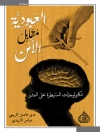On War is one of the most important treatises on political-military analysis and strategy ever written, and remains both controversial and influential on strategic thinking. It was written by Prussian general Carl von Clausewitz, after the Napoleonic wars, between 1816 and 1830. Clausewitz had set about revising his accumulated manuscripts, but did not live to finish the task. On War represents his theoretical explorations. Clausewitz analyzed the conflicts of his time along the line of the categories Purpose, Goal and Means. He reasoned that the Purpose of war is one’s will to be enforced, which is determined by politics. The Goal of the conflict is therefore to defeat the opponent in order to exact the Purpose. The Goal is pursued with the help of a strategy that might be brought about by various Means such as by the defeat or the elimination of opposing armed forces or by non-military Means (such as propaganda, economic sanctions and political isolation). Thus, any resource of the human body and mind and all the moral and physical powers of a state might serve as Means to achieve the set goal.
A propos de l’auteur
Carl von Clausewitz (1780-1831) was a Prussian general and military theorist who stressed the ‘moral’ (meaning, in modern terms, psychological) and political aspects of war. His most notable work, On War, was unfinished at his death. Clausewitz was a realist in many different senses and, while in some respects a romantic, also drew heavily on the rationalist ideas of the European Enlightenment.












